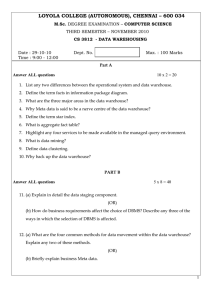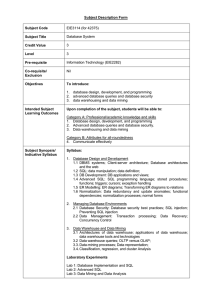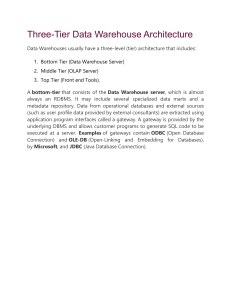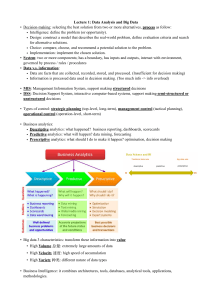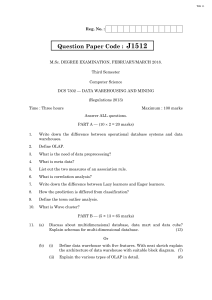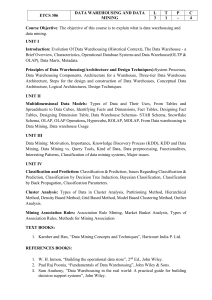session4
advertisement
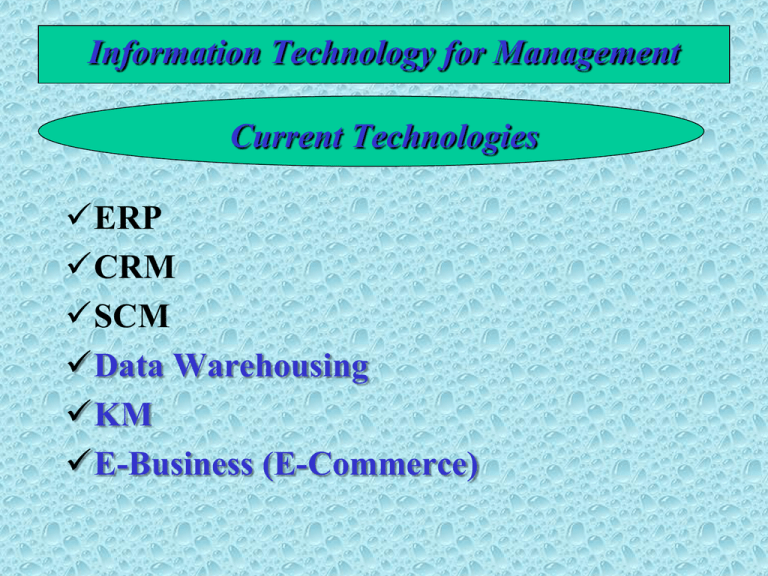
Information Technology for Management Current Technologies ERP CRM SCM Data Warehousing KM E-Business (E-Commerce) Data Warehouse • A data warehouse is the main repository of an organization's historical data, its corporate memory. • It contains the raw material for management's decision support system. • The data warehouse is optimized for reporting and analysis (On Line Analytical Processing, or OLAP). • A data analyst can perform complex queries and analysis, such as Data Mining, on the information without slowing down the operational systems. 2 Components Of Data Warehouse Operational, Historical data Internal Data Sources Data warehouse Data Access & Analysis Extract, Transform Information Directory External Data Sources Queries & Reports OLAP Data Mining 3 4 Data Mining • Concerned with analysis of data and use of the software techniques for finding patterns and regularities in sets of data. • Attempt by the system to translate huge amounts of data into knowledge • Analyzes patterns • Some examples….. – Credit Card Companies red-flagging purchases out of the “norm” 5 Phases of Knowledge Extraction: 1. Selection 2. Preprocessing 3. Transformation 4. Data Mining 5. Interpretation and Evaluation 6 “The basic economic resource is no longer capital, nor natural resources, nor labor. It is and will be knowledge.” Peter Drucker 7 KM • The systematic process of creating, maintaining and nurturing an organization to make the best use of knowledge to create business value and generate competitive advantage. Capturing knowledge Storing knowledge Creating knowledge Distributing knowledge Sharing knowledge Using knowledge • Transfer knowledge from the individual to the collective realm 8 Knowledge Technology (The hardware, software and the hype.) Knowledge repositories Neural systems Data-mining tools Contact software Intranets Extranets Water Cooler Technology 9 Knowledge Repositories • Tool used to store information • Also known as Data Warehouses • Examples: – Discussion databases – Best practices repository – Lessons Learned – Learning Histories 10 Major KM Organizations Institute for Knowledge Management Knowledge Management Consortium International American Productivity and Quality Center Society for Organizational Learning The International Soc. for Knowledge Organization The Gartner Group The Delphi Group 11


